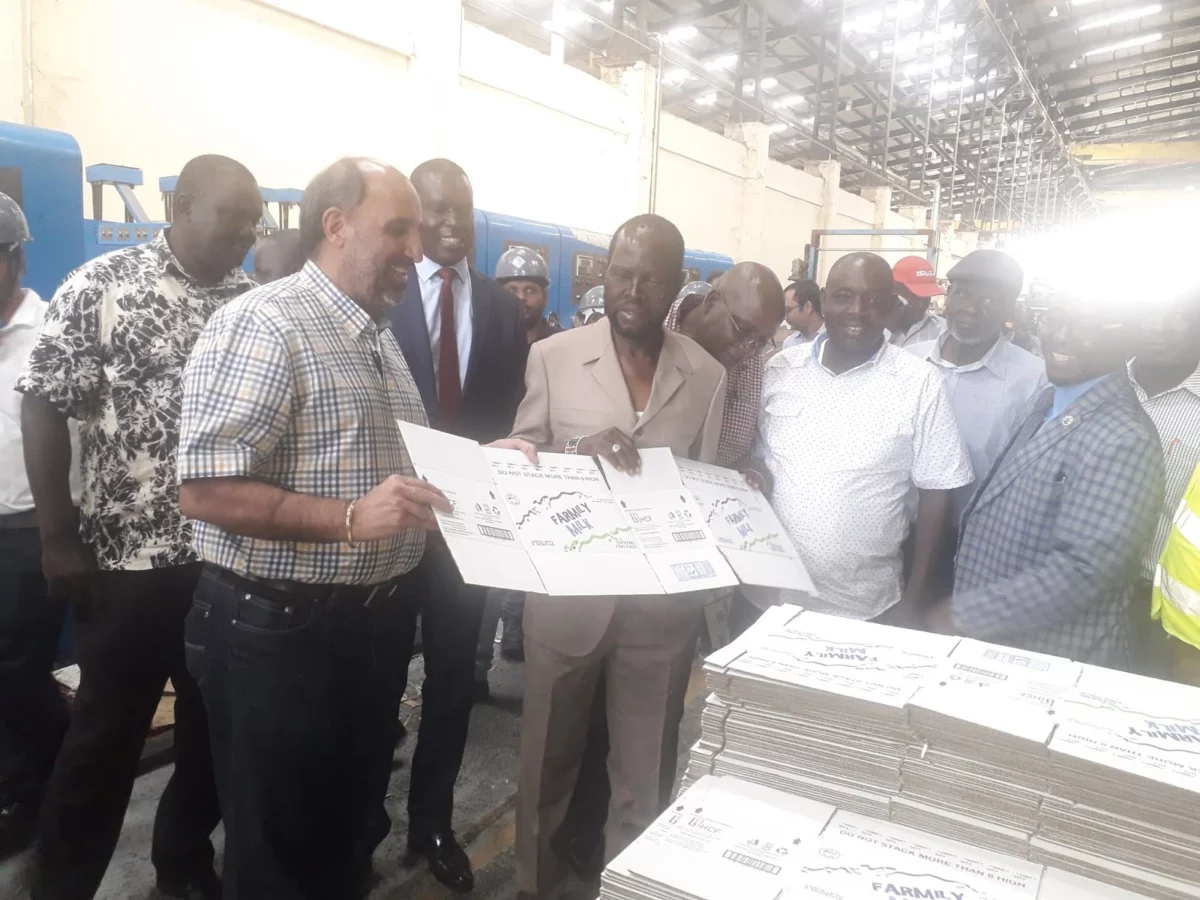In today’s industrial landscape, sustainability is more than just a buzzword—it’s a critical pillar for companies looking to reduce their environmental impact while maintaining economic viability.
Kibos Paper and Packaging Ltd., a subsidiary of the Chate Group, exemplifies this balance by embedding sustainable practices into every phase of their manufacturing processes.
From Sugarcane to Paper: A Zero-Waste Approach
Kibos Paper and Packaging Ltd. operates under the larger Kibos Sugar and Allied Industries Ltd., a company that extracts sugar from sugarcane.
But the process doesn’t stop there. After extracting the sugar juice, the leftover byproduct, bagasse—a fibrous material—is repurposed to manufacture various paper products such as cartons, SFK (semi-chemical fluting), tableware, and soon, white paper. This not only ensures that nothing goes to waste but also creates a circular production cycle.
Moreover, the company has introduced new products like polypropylene (PP) bags, demonstrating its commitment to innovation while expanding its range of eco-friendly packaging solutions.
Sustainable Energy and Resource Management
One of the most remarkable sustainability initiatives at Kibos Paper and Packaging Ltd. is their self-sufficiency in power generation. Using the same bagasse from its sugar production process, the company generates both power and steam to run its entire factory. This closed-loop system reduces reliance on external energy sources and minimizes their carbon footprint.
Additionally, Kibos is reclaiming and treating all chemical water from their production processes. With their own water and effluent treatment plants, they ensure that no waste is discharged into lakes or other natural water bodies, safeguarding local ecosystems.
From Waste to Fertilizer
Kibos’ waste reduction efforts extend beyond energy and water. From the waste generated during sugar and alcohol production, the company produces organic fertilizer, which will soon be available in the market. This innovative approach ensures that every byproduct of their manufacturing process is put to use, reinforcing the company’s commitment to a zero-waste philosophy.
Broadening Sustainability: A Focus on Carbon Credits
Kibos Paper and Packaging Ltd. is also exploring the carbon credits market, an initiative that could have significant financial and environmental benefits. The company is actively working toward registering carbon credits, a process that is still developing in Kenya. This effort could help further incentivize their sustainability practices and attract greater financial support for
Challenges and Policy Gaps
Despite their success, Kibos faces challenges due to gaps in local policies that hinder sustainable manufacturing. One of the key concerns is the lack of implementation of the “Buy Kenya, Build Kenya” policy, which aims to promote locally produced goods.
While the policy exists in theory, its implementation has been weak, allowing the continued importation of products, especially paper, that could be sourced sustainably within the country.
Kibos Paper and Packaging Ltd. represents a model of green production in Kenya, offering a clear alternative to tree-based paper manufacturing. However, stronger policy support is necessary to protect local manufacturers and encourage more companies to adopt sustainable practices.
A Fully Sustainable Company
Kibos’ sustainability efforts span every stage of its production process, from the raw material extraction to the final product.
Their philosophy of turning waste into resources embodies a “grave to cradle” approach, where each by-product is repurposed to fuel the next stage of production. This holistic, circular model is not only economically beneficial but also environmentally responsible.
A Greener Future
As the world continues to emphasize the need for sustainable development, companies like Kibos Paper and Packaging Ltd. stand at the forefront of innovation. By investing in carbon credits, expanding eco-friendly products, and utilizing waste for energy and fertilizer production, Kibos is setting an example of how manufacturers can reduce their environmental impact without compromising growth.
The journey toward a greener future requires continuous collaboration, and Kibos remains committed to networking and learning from global trends. With more attention to sustainability, they hope to influence policy changes that support local green manufacturers, ensuring that the vision of a sustainable Kenya becomes a reality.
Read Also: Bamburi Cement’s Sustainability Drive for Net Zero
















